Fill Your Cup with Abundance Zaddy
Abundance Zaddy: In the ways that I learned that the trees hold our memories, and the plants hold our memories—they hold our stories—that also me, as a being, is holding stories in my blood, in my bones, and in my DNA.
Yura Sapi: Welcome to season three. Welcome to our liberation. Welcome to the Building Our Own Tables podcast. The Building Our Own Tables podcast is produced for HowlRound Theatre Commons, a free and open platform for theatremakers worldwide. This is Yura Sapi, here to support you on your journey of creation towards our collective liberation. How exciting is it to transform our future and be the future ancestors we’ve dreamed for? May you receive that which supports you on your journey and release that which does not. The universe expands as we do. Nature evolves as we do. We remember. We remember. We remember.
Chorus: [sings “Remember”]
Yura Sapi: Let us call upon the four elements that support us, the fire that burns within, igniting our imagination, our ability to see into the future. The water that holds us and holds within our memory, the air that lifts us up and carries our stories across to meet each other. The earth, which provides us sustenance, repair. To support us on this journey, let us welcome in all of our ancestors.
We’re learning from visionaries who have built their own tables, receiving gems of wisdom to support us along our journey. In today’s episode, I’m honored to introduce you to Abundance Zaddy, a dreamer and dream worker who connected with me to make this dream a reality.
Abundance Zaddy: My name is Abundance Zaddy. I am the son of Venus and Carlton Childs. I weave multimillion dollar wellness ecosystems. My Zulu name is Makhosi Igonyama Motsumi Kwesikhathi. I am called by the ancestral lions to transcend time. Because of the call on my life to be [a South African traditional healer].
I support people who are birthing new worlds, birthing new versions of themselves, calling into being the liberation and the abolition that the world truly needs for us to heal: working with nonprofits, arts organizations, collectives, dreamers, birth workers, folks who are birthing, artists, the paradigm shifters, Black, LGBT, queer and trans, disabled caregivers, being a farmer, an artist, birth workers, teachers, folks who are really holding space for the different transitions that happen in life—whether that be transitioning through childhood, transitioning gender, transitioning into parenthood, transitioning into becoming an elder. What do they need to be able to support themselves well in a thriving way, be able to grow, be able to heal? Also thinking about what do their ancestors need and what do their descendants need to be well and whole and full?
As I’m weaving these multimillion-dollar wellness ecosystems, I’m doing that through organizational development, through fund development, through fruition birth-working; a combination of modern operation standards combined with indigenous African oral tradition and ways of being. I feel super grateful and humbled to be called to this work as a Black and Indigenous, transmasculine, neuro-divine multiplicitous being. I feel very fortunate, humbled, honored to be called to this work to serve folks in this way in this centering of folks who are already giving so much, pouring so deeply into their communities—to support those folks who it is in their heart, it is in their training, it is in their way of being that they’re going to continue to pour into their communities. So supporting those folks causes this ripple effect.
One of the ways that I feel so excited to support people with is teaching them how to dream with their ancestors. And in this process of learning how to dream with their ancestors, they learn how to grow these strong relationships with themselves, with those around them, and also these strong relationships with money, with resources. As they already are a resource to their community, they can be more resourced, really experiencing themselves as this overflowing well that continues to perpetuate more wealth and more wellness. In the ways that I learned that the trees hold our memories, and the plants hold our memories, they hold our stories, that also me as a being is holding stories in my blood and my bones and in my DNA. All of these ways of being end up in my organizational development, they end up in my fund development, they end up in my fruition birth therapy, they end up in me as an artist. I would like to share a medicine song to allow us to feel some of the transcendence of time.
[sings medicine song]
That song is a call to ceremony for those who are seeking. For me, it is the transcendence of time because it is not expected that someone hear with their ears to hear that call. It is the ripple effect of pouring into one being and the ways that that being’s care can ripple out to everyone in their community who it touches. I’m no longer singing the song, but the song is traveling so that folks can find ceremony to find home.
My intentions that I put into my medicine songs that folks are finding whole, repaired hearts. Colonialism, the delusion of white superiority, has broken our hearts. Our hearts have been broken in so many ways in which it can be difficult for us to trust others, difficult for us to delve into our dreams, delve into the deepest knowing within ourselves, to really be able to hold each other deeply in community. To sing these medicine songs that transcend time, I intend for them to be this heart repair, this salve across time and across space so that we can know ourselves more deeply and be so connected and so in love.
I use the words “connected in love” as someone who is a survivor—a survivor of many, many types of violence. In my own healing journey, I have learned to be a love frequency within myself: a love that can see, can witness, can hold space and can figure out how to laugh again, can figure out how to find intimacy again, can figure out how to have joy and to cultivate a deep sense of peace within oneself. A love that has really clear boundaries; a love that is so deeply, deeply, deeply protective; a love that understands the ways in which history has harmed us and the resilience that is in our histories. At the same time, like such a pouring-over of sweetness and honey and all of the repair that is necessary.
Chorus: [sings “Time is Not Linear”]
Yura Sapi: Time is not linear. You are not alone. You are never alone. We’ve been through this cycle before. We’re working from the power of our past fighters from before and time is not linear. Connections happen for a reason. There’s a reason I am here where I am, so bask, indulge, refuge in the happenings of now, the happenings of past, which will guide to the future, which is also really the past.
The Building Our Own Tables podcast is produced in partnership with Advancing Arts Forward, a movement to advance equity, inclusion, and justice through the arts. We create liberated spaces like this one to uplift, heal, and encourage us all to change the world. You can connect with us more beyond this podcast by visiting advancingartsforward.org. We offer coaching, courses, organizational consulting and an artist’s residency in Nuquí Choco, African descendant, and indigenous Emberá native land.
Colonialism, the delusion of white superiority, has broken our hearts. Our hearts have been broken in so many ways in which it can be difficult for us to trust others, difficult for us to delve into our dreams, delve into the deepest knowing within ourselves, to really be able to hold each other deeply in community.
Abundance Zaddy: One practice that I want to share is a journey of hydration and honey. Imagine that you have a glass of water in your left hand and some honey in your right hand. Invite us to sit back in our seats or lay on the ground in a position that is comfortable. For me, I’m going to have both of my feet flat on the ground and I’m going to lean back in my chair. And we’re going to take a few breaths together with our hands out, imagery of the cup of water and the honey. Breathing in and out. Breathing slowly in through the nose and breathing out. Next, we’re going to take several quick breaths in and out through the nose and we’ll imagine the heart feeling warm the more we breathe. Okay, are you ready? Here we go.
Now with a hand that has the water in it, raising that hand up and slowly pouring it over our body. As our hand reaches our forehead, slowly brushing down our face as if we’re brushing something off of us, clearing ourselves off. Hands down the chest, over the shoulders, brushing gently and firmly all the way down, down the knees, all the way down to the floor. Brushing, brushing, brushing.
When we look to the left hand, we see that that cup of water has already been replenished and is full again. We set that cup of water down in front of us because we have plenty to give to our community. And we turn to the right hand that has the honey and we slowly bring the honey up to our lips so that the words that we may speak may sweet. We bring the honey to our heart so that our heart may know the frequency of sweetness above all else and allow that frequency of sweetness to be one of protection. Move the honey all the way down our bodies, so that the path that we walk may be one that is sweet.
When we return our right hand to the position, we see that the honey has been refilled; it has been replenished. Let’s place the honey next to the water because now we have so much sweetness to give and to share. I invite us to return to this practice of the water and the honey, the hydration, and the sweetness on a daily basis.
Remember, as we shift, as we move paradigms—as we become who we came here to be—that sometimes our shadows are places where we have pain, the places where we have difficult memories, sometimes those will surface as well. In those moments, giving those experiences to the water and to the sweetness while also leaning into community, leaning into elders, speaking the things to folks with consent. Asking folks, “Do you have capacity to witness with vulnerability, with compassion, that a difficult part of my story, a way in which colonialism or history has taken something from me or from my family? Do you have capacity for that?”
Pausing in the way that we pause with the water and the honey, the hydration, and the sweetness. Pausing to allow them the space to decide if they have capacity for it. In moments when there isn’t someone else around, go and sit with a tree. In my journey, I have learned that the trees have such a capacity to listen because that’s what they’ve been doing for sometimes decades, sometimes only a few years, sometimes for hundreds of years. If there is no person with the capacity to listen in a way that is hydrating, in a way that is sweet, in a way that is compassionate, in a way that can hold the bigness of who you are, to go and sit with a tree and tell your story. Pour all the things that you have been holding into the ground and let it come out as water so that your cup of water may be refilled, so that your honey may be refilled. We are both the water and the honey. We get to experience hydration and sweetness every day of our lives as a part of being alive and as being human.
Abundance Zaddy is the founder and one of the Elder council members of Cause Reign’s Dream School. Cause Reign is an oral history project that connects Black people, with a focus on Black trans and queer folks to their histories through dreamwork, the practice of remembering, recording, and activating the healing potential of our dreams. Dream School is an acronym for: Dream, Reclamation, Energy and Ancestral Healing, and Matriarchal Praxis. Dream School creates celebratory remembrance containers as an online decolonial education. Students remember how to eat, pray, tell stories, and sing medicine songs while walking and listening alongside their ancestors. You can read more about my background and bio at www.causereign.com/community.
Yura Sapi: This podcast is produced as a contribution to HowlRound Theatre Commons. You can find more episodes of this series and other HowlRound podcasts on iTunes, Google Podcast, Spotify, and wherever you find podcasts. Be sure to search and subscribe to receive new episodes. If you love this podcast, post a rating and write a review on those platforms. This helps other people find us. You can also find a transcript for this episode along with a lot of other progressive and disruptive content on HowlRound.com. Have an idea for an exciting podcast, essay, or TV event that the theatre community needs to hear? Visit HowlRound.com and submit your ideas to the commons.
There’s a reason our art is of the heart. We transform and transcend; share love and share truths. Creation is the cure for destruction. Storytelling is liberation. Communing is power. Evil wins when we learn how to dehumanize. Instead, we must decolonize. Upon us is an undoing of great feats, so let people in. Be stronger together because there is a weakness in solitude.
This is Yura Sapi. You can find out more about me at yurasapi.com or follow me on Instagram or LinkedIn @Yura Sapi. Thanks for joining us.

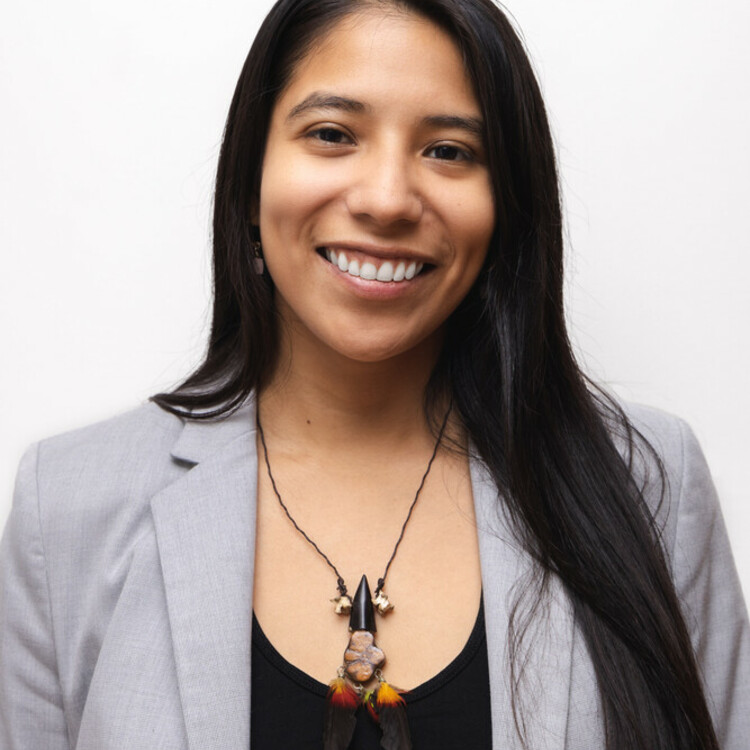
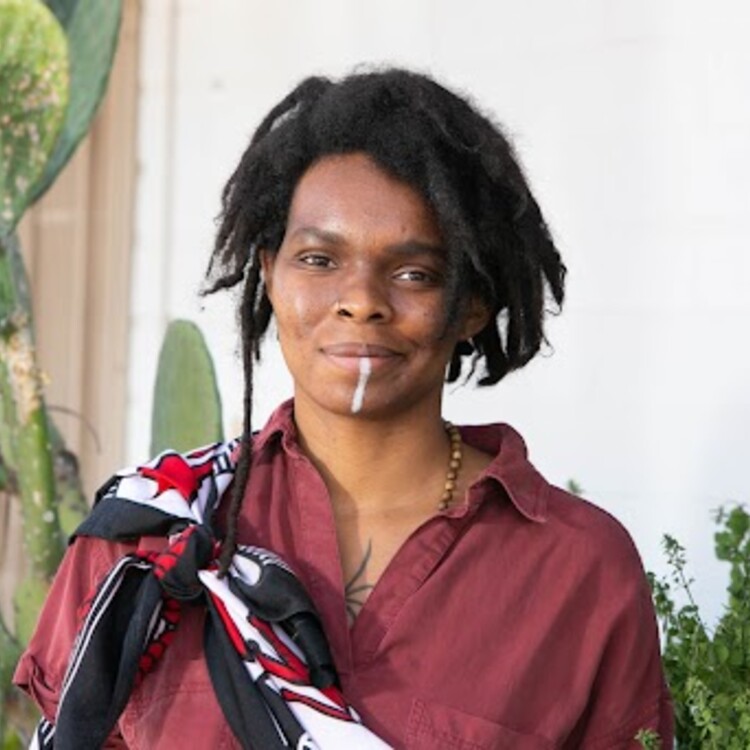
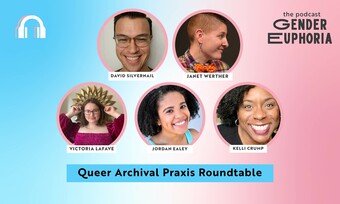






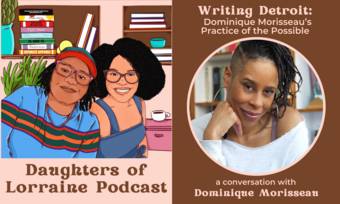


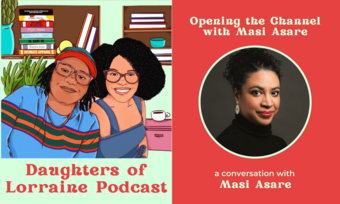

Comments
The article is just the start of the conversation—we want to know what you think about this subject, too! HowlRound is a space for knowledge-sharing, and we welcome spirited, thoughtful, and on-topic dialogue. Find our full comments policy here